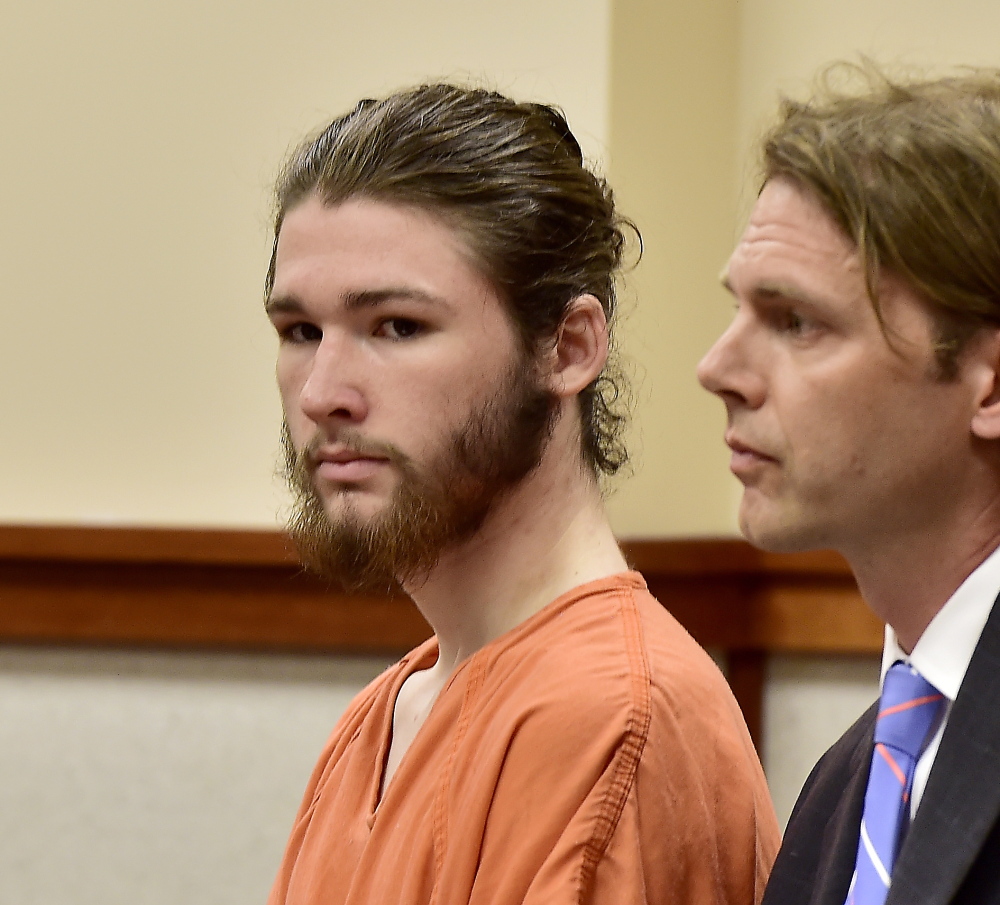Prosecutors have dropped a rape charge against Logan Taylor, the 22-year-old former Bowdoin College student who was accused of sexually assaulting a fellow student last spring, according to court documents.
Taylor, who was 21 when he was accused of raping the 20-year-old female student in his dorm room on May 24, 2015, has pleaded guilty to disorderly conduct through an Alford plea agreement in which he did not admit guilt but acknowledged that the evidence against him would likely lead to a conviction.
The plea agreement was finalized April 7, and was signed by Cumberland County Assistant District Attorney Michael Madigan. Messages to the District Attorney’s Office were not returned Wednesday.
Taylor was sentenced to five days in the Cumberland County Jail.
The female student declined to comment when reached by phone on Wednesday. The Portland Press Herald does not identify victims of sexual assault without their consent.
Court records do not explain why authorities dropped the felony charge, which carried a maximum penalty of 30 years in prison. Taylor’s attorney, Andrei Maciag argued in a court motion that the state should turn over a recorded version of the grand jury proceeding that resulted in Taylor’s indictment. It was the only recorded interview law enforcement conducted with the victim, and it was incomplete because the battery on the detective’s recording device ran out.
Maciag argued the unrecorded part of the interview contained evidence that would exculpate Taylor.
A judge denied the motion and instead requested that the detective who conducted the interview provide an explanation to account for the battery issue and to describe what was discussed after the recording stopped.
In a subsequent affidavit, the detective swore that there was no substantive information discussed about the assault after his recorder died, and he used that time to photograph text messages on the woman’s phone.
Messages for Maciag and the Cumberland County District Attorney’s Office were not returned Wednesday, and Madigan, who prosecuted the case, has since left for another job, the office said.
The alleged rape was first reported about 2:35 a.m. May 24, 2015, after the victim called campus security for a ride home. She said she’d been with Taylor, he had walked off and she was concerned about his well-being, then disclosed the alleged assault.
Police found Taylor in Tops- ham a few hours later. He was accused of raping the student between 1 and 1:30 a.m., after the two had spent time in his dorm room in the basement of Coleman Hall, eating pizza and drinking shots of alcohol. The woman said he carried her into his bedroom and began to have sex with her. She told police that he did not hold her down or threaten her and she did not fight him, but she did not give her consent to the encounter.
When she began crying, the encounter stopped, and Taylor left his room to take a walk to a nearby foot bridge.
The two exchanged text messages, including one in which Taylor called himself a “monster,” according to court records. The woman went looking for him, fearing he would harm himself, before calling security.
In 2014, the most recent year for which data was available, there were 17 rapes reported on Bowdoin’s campus, a three-fold increase from the year before. Among colleges and universities in Maine, only the University of Maine, which has more than six times the number of Bowdoin’s 1,800 students, had as many reported rapes.
Data compiled by The Washington Post on campus rape statistics indicated that in 2014 among colleges nationwide, Bowdoin had the fifth highest rate of reported rapes per 1,000 students, at 8.3. Reed College in Oregon, with an enrollment of 1,453, had the highest rate, with nearly 13 reported rapes per 1,000 students.
Bowdoin officials last year attributed the high number of reported rapes to a greater awareness about campus sex crimes and to new federal rules about how to report campus sex assault cases. College officials said the number can be misleading because rapes are recorded in the year they are reported, not the year the rape allegedly occurred, and that during training sessions on improving crime reporting methods, some students came forward to report crimes that occurred in earlier years.
All colleges and universities that receive federal funding must collect crime statistics and report them annually to the FBI through the federal Clery Act.
Copy the Story Link
Send questions/comments to the editors.




Success. Please wait for the page to reload. If the page does not reload within 5 seconds, please refresh the page.
Enter your email and password to access comments.
Hi, to comment on stories you must . This profile is in addition to your subscription and website login.
Already have a commenting profile? .
Invalid username/password.
Please check your email to confirm and complete your registration.
Only subscribers are eligible to post comments. Please subscribe or login first for digital access. Here’s why.
Use the form below to reset your password. When you've submitted your account email, we will send an email with a reset code.